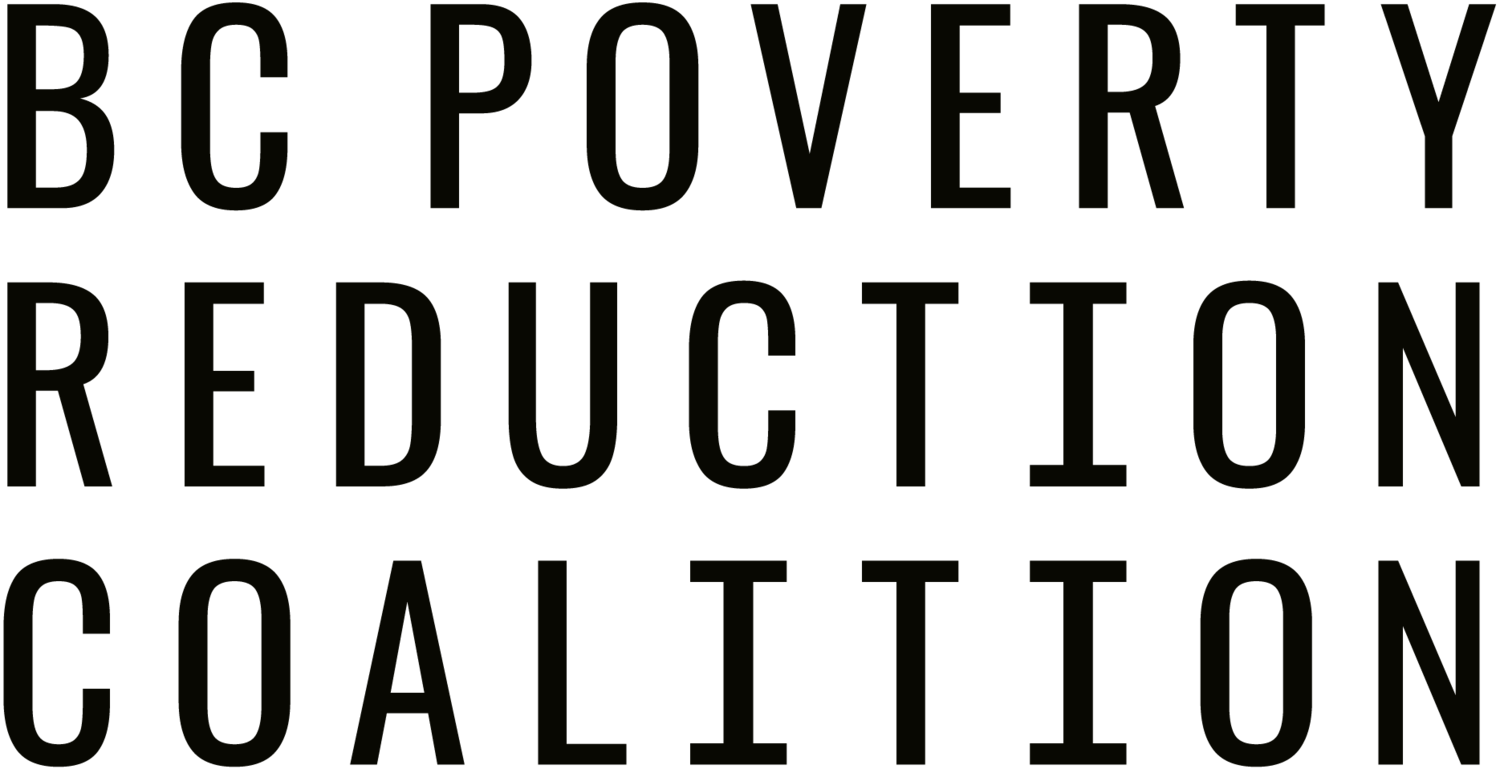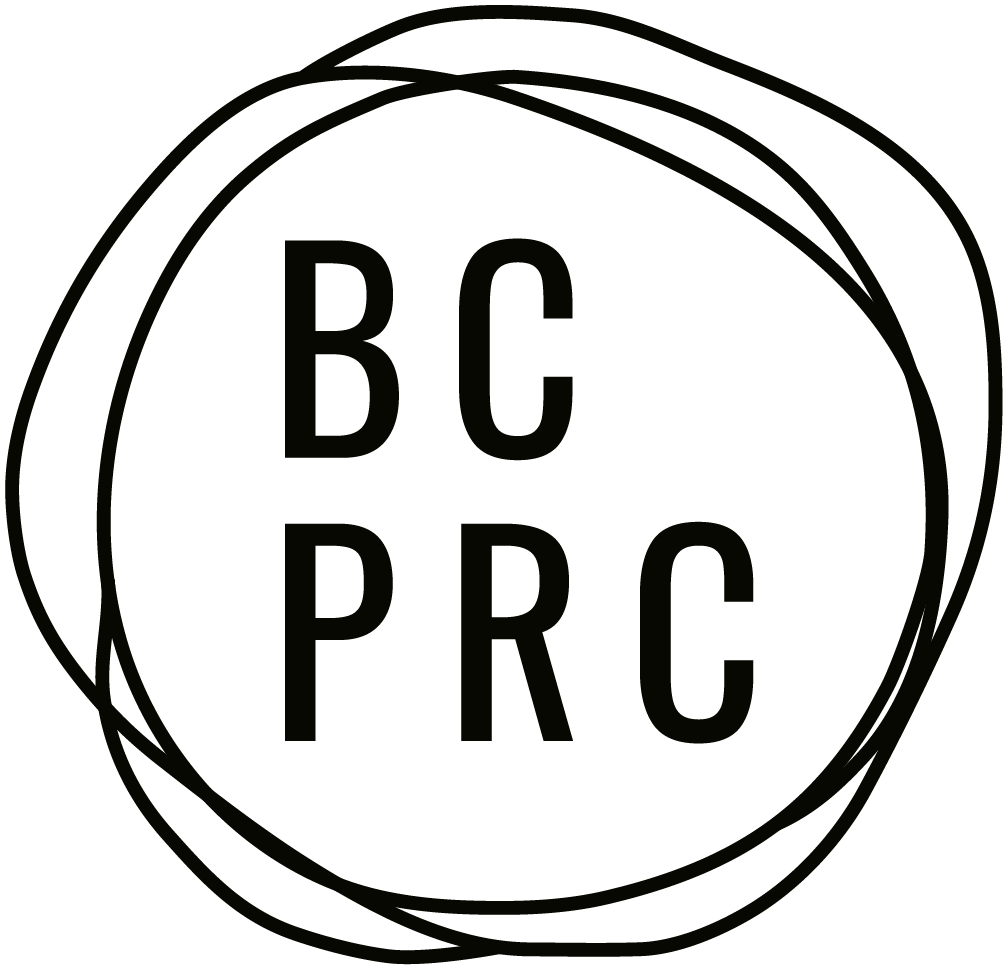Economic Justice for Families is Needed to Eradicate Poverty in BC
“Elbows up” nationalism isn’t the solution to economic inequality.
By Rowan Burdge (BC Poverty Reduction Coalition) and Sharnelle Jenkins-Thompson (West Coast LEAF)
Originally published in The Mainlander on November 10, 2025
Last month marked the 38th annual International Day for the Eradication of Poverty. The United Nations named this year’s theme, “Ending social and institutional maltreatment by ensuring respect and effective support for families.”
This theme could have been drawn directly from conversations at the BC Family Well-being Coalition, where we join others each month from across so-called British Columbia to advocate and create systems that truly support family well-being.
Our current systems are far too preoccupied with policing, surveilling, and creating bureaucratic hurdles that keep people from accessing the support they need.
And over the past year, a resurgence of nationalism in Canada and internationally has allowed governments to paper over economic injustice. In BC, this has meant the continuation of inadequate income security programs, contributing to a family policing system that focuses on separating and harming Indigenous families and communities.
Families in poverty often face stigma and punitive practices in places that are meant to help: schools, clinics, welfare offices, and child protection systems. Single mothers, Indigenous families, parents with disabilities and historically discriminated groups report judgment and control that erode trust and agency when accessing public services. Sometimes this culminates in poverty-driven family separation – which causes lasting emotional and social harm to many children and caregivers.
Alongside the UN and our partners, we call on the BC Government to invest in a dignified social safety net for families as a critical aspect of stabilizing the economy and any plan for so-called “nation-building.”
As the provincial and federal governments are asking people to buy into a narrative of nation-building that pushes through extractive resource projects, xenophobic border bills and so-called tough on crime policies, we must push back to advances in settler colonialism disguised as “nation-building” that continues to harm the most marginalized. What approaches can be taken to disrupt this narrative and challenge the neocolonialism that continues to punish and harm families, especially Indigenous families?
Without serious intervention, income insecurity and the widening gap between families living in poverty and those who do not will only grow wider. We must mobilize to reject the austerity agenda and its extensive cuts to essential programs, funding, and services.
The dominant system we have in place is overseen and managed through BC’s Ministry of Children and Family Development, which connects families to social workers and services. But as our coalitions and families across this province know, the hard truth is that the MCFD’s main objective is to investigate families and assess their parenting. These investigations are often decontextualized from structural issues like colonization, poverty, and disability—meaning that reporting to the Ministry is not a guaranteed pathway to supports for families. Reaching out for support can open a file that is later weaponized to paint parents as unable to provide care.
Even with the changes brought forward through the federal Bill C-92 (An Act respecting First Nations, Inuit and Métis children, youth and families), which became Bill 38 in BC, we continue to hear stories of systemic poverty being reframed as neglect of children. The child abuse handbook in BC defines neglect as, “failure to provide food, shelter, basic health care, supervision or protection from risks, to the extent that the child’s or youth’s physical health, development or safety is, or is likely to be, harmed.” We argue that the provincial government is failing to support families to have their needs met through an adequate social safety net.
The 2024 BC Child Poverty Report Card commissioned by a number of public sector organizations, reveals a continuing rise in child poverty across the province. The report shows that 1 in 6 children—147,570 kids—live below the poverty line. This marks a 16.8 per cent increase from 2021 and highlights the ongoing struggles of families facing economic hardship since the end of COVID-19 pandemic relief payments, when the BC and Federal Governments responded to the crisis through investments in people and families. During this period, children in lone-parent families, disproportionately led by women, had the highest poverty rate of all groups at 45.5 per cent.
When looking at available data for children on First Nations reserves in BC, we see a child poverty rate higher than the provincial average at 34.8 per cent and an even higher rate of 42.2 per cent among children in the included rural reserves. Families know and data shows that Indigenous children are more likely to be removed from their homes because of poverty. While the formal practice of birth alerts is outlawed, removal of very young infants continues to be reported to the Family Well-being Coalition from around the province. Given the ongoing systemic harm that Indigenous peoples in BC still experience, and the ongoing legacy of the violence of the forced removal of Indigenous children via both residential school systems, vast displacement from land, and the ‘60s scoop, it is no surprise that many Indigenous families know they cannot trust existing systems to meet their needs.
When looking at the two-year period from 2020 to 2022, BC’s child poverty rate rose by an alarming 25.6 per cent, a trend that appears to be exacerbated by the removal of COVID-19 pandemic income supports. This underscores how essential these supports were in shielding families from financial hardship that could potentially result in the loss of their children through MCFD reporting.
It is not that we don’t know what needs to be done to eliminate child and family poverty. We must invest in what we know can work to change the material conditions for families and lift children, youth, and their kinship networks out of poverty.
The BC government has been offered a blueprint to do so – and it is not universal basic income.
In 2018, BC appointed an expert panel to investigate the feasibility of basic income as a potential tool for poverty reduction. Following rigorous and extensive research into the province’s social safety net, the panel issued a comprehensive report in 2020. The panel did not recommend a universal basic income. Instead, they put forth detailed recommendations for creating a more cohesive and dignified income support system that includes strengthening basic services for all and targeted cash transfers to people fleeing domestic violence, disabled people, and former youth-in-care.
Over the last five years, we have seen the government prioritise and invest in some of the panel’s recommendations, including the Strengthening Abilities and Journeys to Empowerment program, a new Unconditional Income Support for former youth in care until their 20th birthday, a Conditional Income Support of $1,250/month based on enrolment in a post-secondary program, and increased navigator supports. These reparations and supports for former youth-in-care are welcome, as children are not only forced into these systems because of poverty, but also experience higher rates of poverty, homelessness, and higher rates of poor mental health and suicide.
But to ensure these newly implemented programs and supports have the intended impact, MCFD must commit to removing the barriers, exceptions, administrative burden, and loopholes that continue to exclude many former youth-in-care. These barriers, documented by the BC Ombudsperson and Fairness for Children Raised by Relatives, highlight how certain children in care are excluded.
As coalitions, we advocate not only for support for those aging out of care but also for investments in family well-being and economic justice, ensuring that children are never put into care in the first place.
As the United Nations has stated for 2025, there are three steps governments must take to truly eradicate poverty and change course:
From control to care: Design services that start with trust. Reduce punitive conditionalities, streamline documentation, and prioritize respectful, person-centred interactions.
From surveillance to support: Rebalance investments away from monitoring and removal toward family-strengthening services: income support, quality childcare, adequate housing, mental health care, parenting support, and access to justice.
From top-down to co-created solutions: Involve families living in poverty at every stage—assessment, design, budgeting, delivery, and evaluation—so policies reflect real needs and constraints.
Families shouldn’t be forced to parent in fear that their poverty can trigger an investigation and child apprehension. It’s not enough to say that the government will not conflate poverty with neglect—the government must alleviate this poverty. This is the economic investment that we need—and these calls should not be confused with abstract, inaccessible services or further surveillance, but real, concrete investments. Families deserve safety and economic justice in BC.


